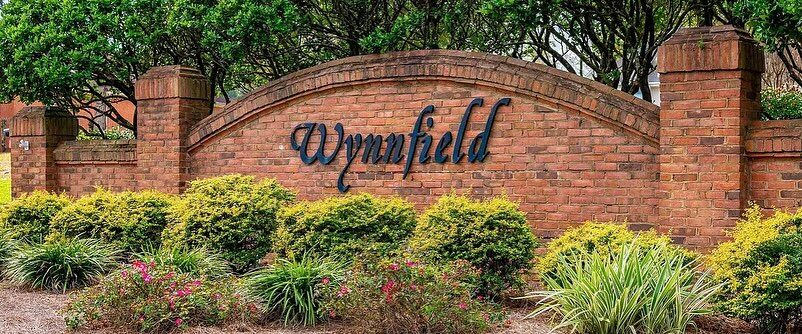More than 68 million Americans live in community associations, according to the Community Associations Institute (CAI), meaning one in five people is required to follow the rules and regulations of a homeowners association (HOA), cooperative, or condominium association. Residents of Wynnfield HOA are among those governed by these guidelines, which are designed to maintain property values and foster a harmonious community.
According to a 2016 CAI survey, 65% of residents nationwide find living in an HOA positive, while 22% remain neutral on the experience. However, a 2015 survey by the Coalition for Community Housing Policy in the Public Interest (CHPPI) found that 72% of homeowners had experienced disputes with their associations, often finding them difficult to resolve.
Even in the best-run associations, conflicts can arise, whether over parking rules, resident dues, or enforcement of regulations. Unfortunately, disputes with Wynnfield HOA—or any HOA—can often feel more challenging to resolve than issues with city government.
“When an owner takes on an HOA, the deck is really stacked against the homeowner,” says Sara Benson, a founder of CHPPI and co-author of Escaping Condo Jail: The Keys to Navigating the Risks & Surviving Perils of the ‘Carefree’ Community Lifestyle.
While it’s possible for homeowners to prevail in disputes with an HOA, it requires careful navigation and adherence to procedures.
Understanding Wynnfield HOA’s Rules and Governance
Wynnfield HOA, like all homeowners associations, is governed by state laws, which can vary widely. Each HOA also has its own governing documents, which include:
• Declaration of Covenants, Conditions, and Restrictions (CC&Rs): Legally binding documents filed with the state that outline the rules homeowners must follow.
• Bylaws: Procedures governing how the HOA operates, such as electing board members.
• Rules and Regulations: Specific guidelines established by the board of directors.
Compliance with these rules is typically overseen by a volunteer board of directors. Larger associations, like Wynnfield HOA, may also contract with management companies to handle day-to-day operations.
If conflicts arise that cannot be resolved directly with the HOA, homeowners may need to take legal action, often through civil court. However, lawsuits can be expensive, and even if homeowners prevail, they may still have to cover their legal fees. Meanwhile, the HOA’s legal costs are funded by the dues paid by all members.
Given these stakes, it’s important to address disputes early and amicably.
Common Points of Conflict in Wynnfield HOA
Two primary areas of conflict with Wynnfield HOA are:
1. Collection of Dues or Assessments: Homeowners who fall behind on payments may face penalties, liens, or even foreclosure. Wynnfield HOA, like many associations, has the right to foreclose on a property for nonpayment of dues, including associated attorney fees and late charges.
2. Rule Enforcement: Violations of community guidelines, such as parking restrictions or property maintenance standards, can lead to fines or other penalties.
If you receive a notice of violation or overdue dues, your first step should be to request a meeting with the board to discuss the issue.
Best Practices for Resolving Disputes with Wynnfield HOA
1. Know the Rules: Before purchasing a property in Wynnfield, you should review all governing documents, including the CC&Rs, bylaws, and rules. If accused of a violation, ask for clarification in writing and follow the established process for addressing disputes.
2. Be Pleasant: Remember that board members and committee volunteers are your neighbors. Approach disputes with kindness and a willingness to understand their perspective. This approach increases the likelihood of a favorable resolution.
3. Respond in Writing: Document all communications with the HOA. A written record ensures clarity and protects you in case of escalation.
4. Don’t Argue the Rule: If you disagree with a specific rule, such as parking restrictions, don’t argue its validity when accused of a violation. Instead, follow the process to challenge the rule later, such as organizing a petition with neighbors.
5. Understand the Penalties: Know the potential consequences of escalating a dispute, such as fines or liens. Decide carefully how far to take a fight, keeping these stakes in mind.
6. Keep Paying Your Dues: Even if you’re disputing a fine or rule, continue paying your HOA dues. Failure to do so can escalate the problem, leading to additional fees or legal action.
Addressing Leadership and Governance Concerns
For homeowners dissatisfied with how Wynnfield HOA is managed, the most effective strategy may be to seek change from within. Rally like-minded neighbors to run for the board of directors and advocate for transparency and fairness in decision-making.
“Either get involved and get good people on the board … or decide to just accept it or sell and go somewhere else,” advises Kelly G. Richardson, managing partner of Richardson Harman Ober law firm and author of the HOA Homefront column.
Conclusion
Living in Wynnfield HOA comes with both benefits and responsibilities. While the association helps maintain property values and provides shared amenities, it also enforces rules that homeowners must follow. Disputes with the HOA can often feel daunting, but they are navigable with the right approach: knowing the rules, fostering open communication, and documenting everything.
For those seeking greater influence in how Wynnfield HOA is run, active participation and leadership within the community offer the best path to meaningful change.
